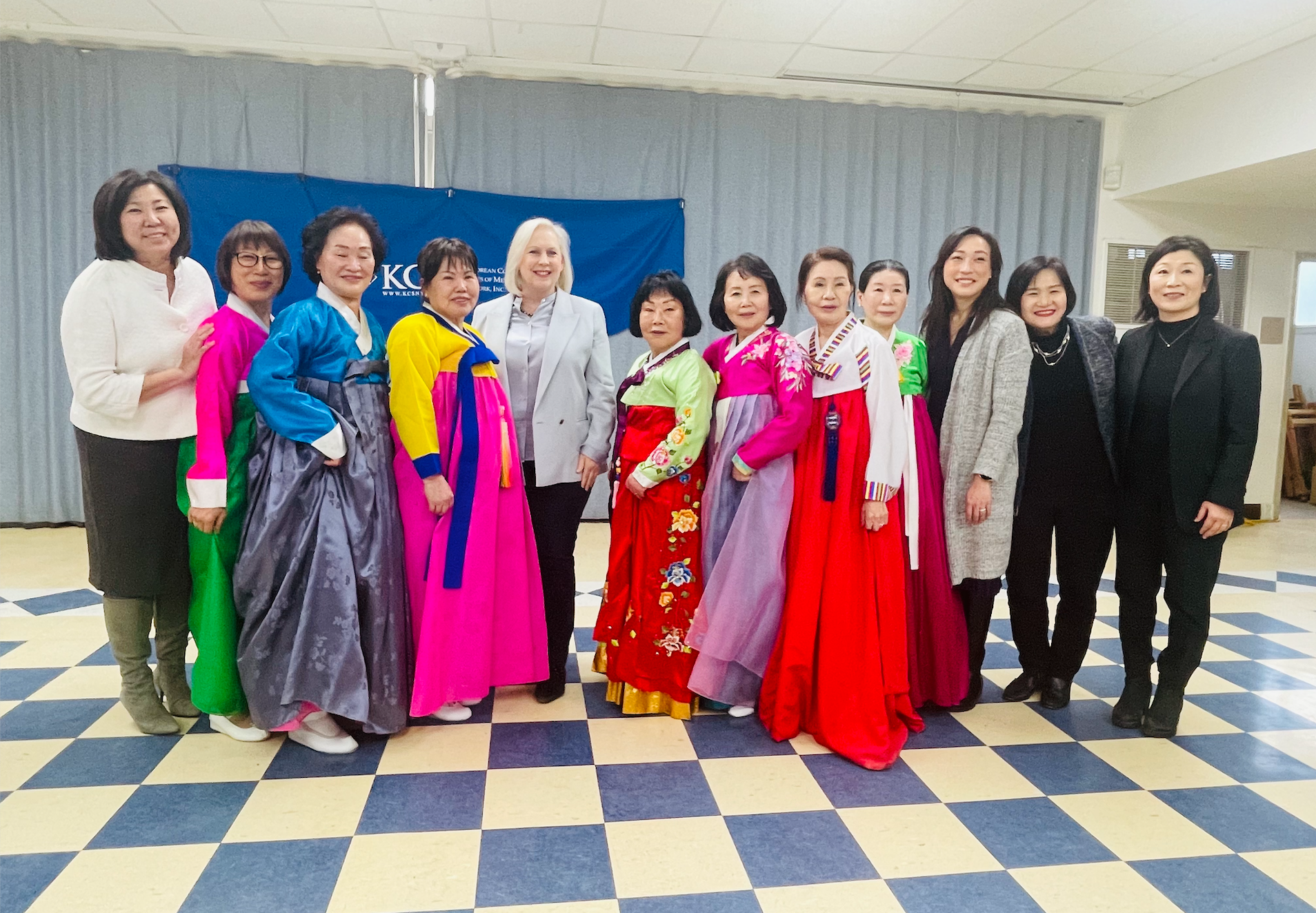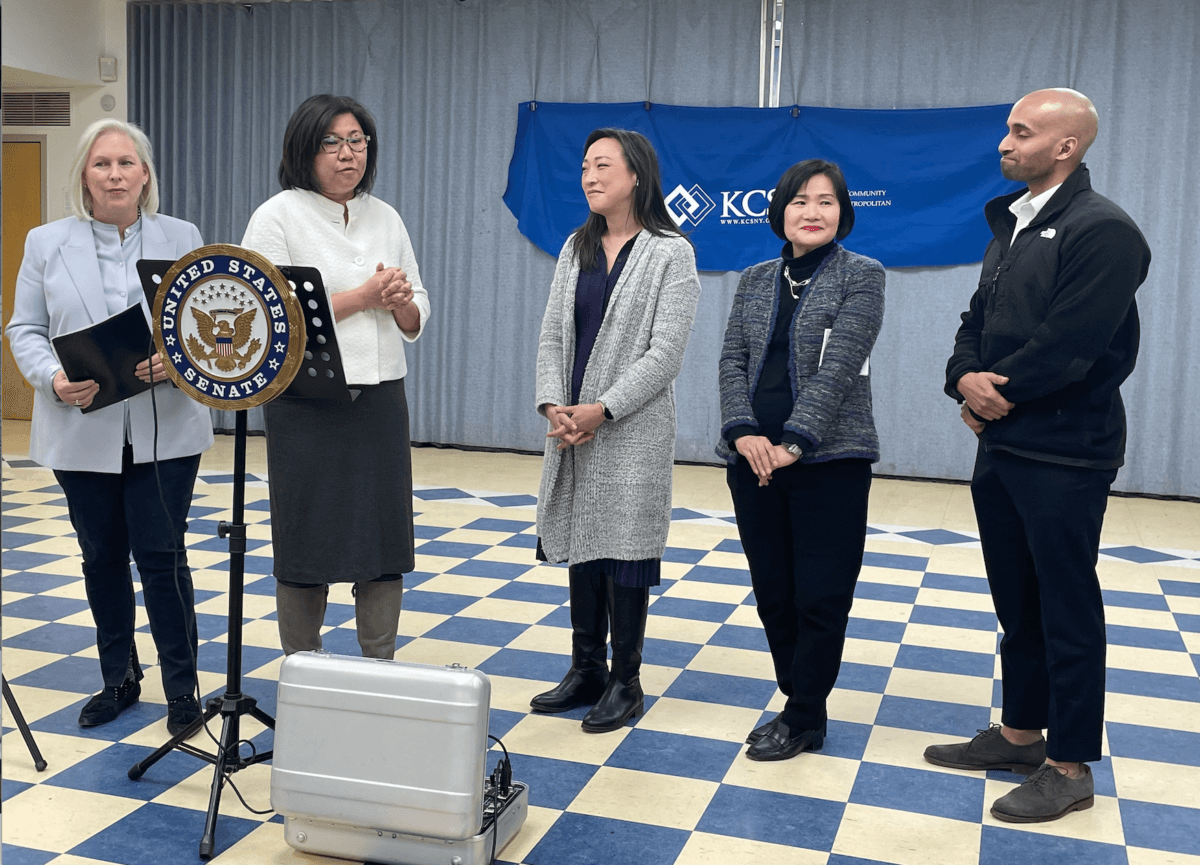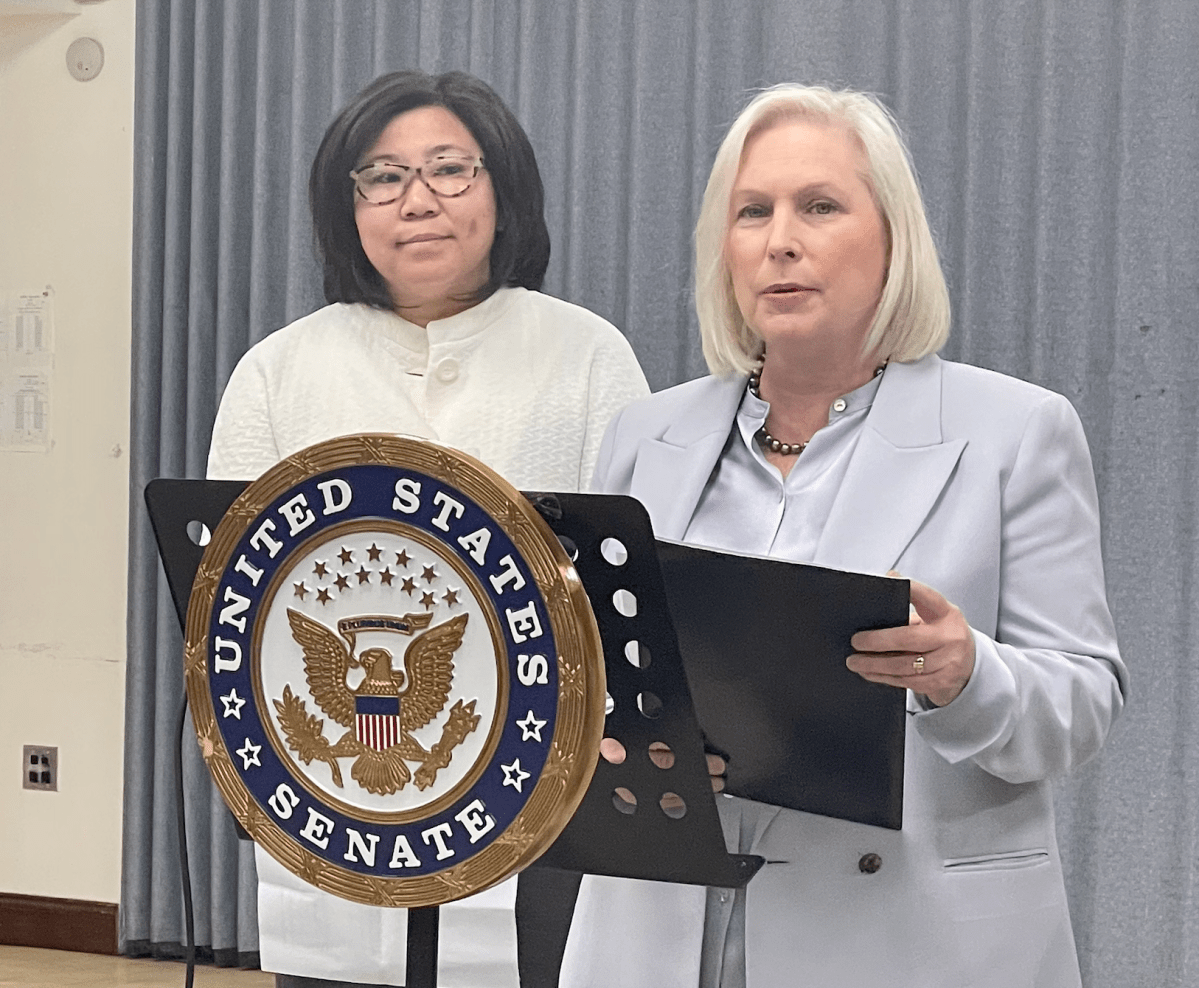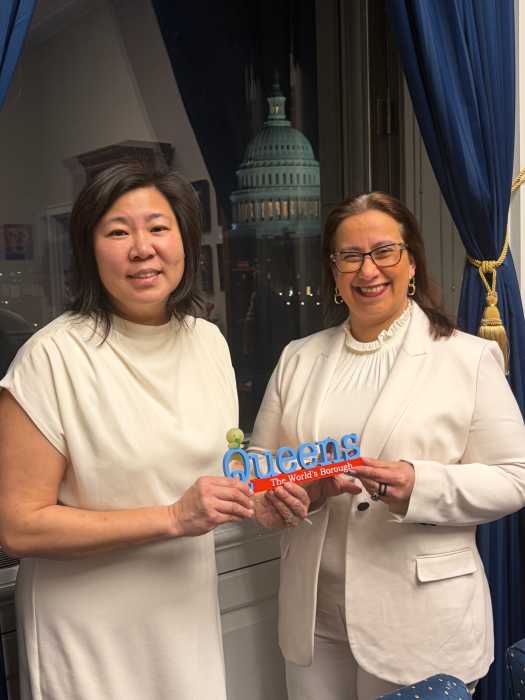As pharmaceutical companies have implemented drug price increases on hundreds of prescription medications, Senator Kirsten Gillibrand announced her policy package to lower the cost of drug prices during a press conference at the Korean Community Services of Metropolitan New York (KCS) in Flushing on Monday, March 28.
Gillibrand was joined by Queens Congresswoman Grace Meng, Councilwoman Linda Lee, Ravi Reddi, associate director of Advocacy and Policy at the Asian American Federation (AAF), and Myoungmi Kim, president and CEO of KCS, for a tour of the facility, located at 42-15 166th St.

According to Gillibrand, the increased prices are on top of already high costs that New Yorkers already face today.
“When you go to the pharmacy, you can be charged two to three times as much as people in other countries for the exact same medicine,” said Gillibrand, who is a member of the Aging Committee. “Health care is a human right, not a privilege. But right now, lifesaving medicine is only lifesaving if you can afford it, and this has to change.”

Gillibrand sent a letter to congressional leadership calling for comprehensive action on reducing the cost of drugs and introduced her plan, “Gillibrand’s Prescription for Lower Drug Prices” that includes five core bills:
Reimagine financial assistance for Medicare: A bill to create the Medicare Cost Assistance Program, a new, streamlined program to provide assistance with Medicare Part A and Part B premiums and cost-sharing for low-income individuals. This would reimagine financial assistance for Medicare Part A, Part B and Part D. The legislation would also expand and streamline the administration of the Extra Help program to provide premium and cost-sharing assistance to eligible low-income individuals with Medicare Part D.
Review brand-name price gouging: A bill that would level the market for Americans purchasing prescription drugs by pegging the price in the United States to the median price in Canada, the United Kingdom, France, Germany and Japan.
Empower Medicare to negotiate drug prices: A bill would direct the secretary of Health and Human Services to negotiate lower prices for prescription drugs under Medicare Part D.
Import lower-cost drugs from Canada: A bill to allow patients, pharmacists and wholesalers to import safe, affordable medicine from Canada and other major countries.
Expand subsidies to seniors living in U.S. territories: A bill that would make Medicare beneficiaries in U.S. territories, such as Puerto Rico, eligible for the Medicare Part D Low Income Subsidy program. Under current law, low-income Medicare beneficiaries in Puerto Rico and other U.S. territories are ineligible for Medicare Part D subsidies. This program, known as “Extra Help,” provides federal subsidies to help low-income seniors with their monthly premiums and other out-of-pocket prescription drug costs.
According to Gillibrand, 30% of adults are not taking their medication as prescribed due to rising costs. The issue, Gillibrand says, weighs heavily on seniors.
“Nearly 9 in 10 older adults take prescription medication and 1 in 4 of those seniors say it’s too difficult to afford them. Even with help from Medicare, the portion of prescription drug costs that older adults are responsible for, can be overwhelming on a fixed income,” Gillibrand said. “Medicare is facing rising costs as well.”
Under current law, the secretary of the U.S. Department of Health and Human Services (HHS) is prohibited from negotiating lower drug prices on behalf of Medicare Part D beneficiaries. In contrast, other government programs, like Medicaid and the Department of Veterans Affairs (VA), are allowed to negotiate.
According to a recent report by the Government Accountability Office, Medicare paid twice as much for the same prescription drugs as the VA in 2017.
In 2020, five of the largest pharmaceutical companies in the U.S. made nearly $45 billion in profits. That same year, in the midst of a twin public health and economic crisis, drug makers raised the prices of more than 860 prescription drugs by 5%, on average. In 2020, the average annual cost of therapy for widely used specialty drugs was more than $84,000.
“This is nearly three times the median income for people on Medicare and more than four and half times the average Social Security retirement benefit,” Kim said.
Lee, Meng, Reddi and Kim applauded Gillibrand’s efforts to address prescription drug price affordability.
Lee, who previously worked as the president and CEO of KCS, said that seniors, particularly those in the Asian American and Pacific Islander (AAPI) communities, struggle not only with the cost of Medicare and prescription drugs but also accessing those programs to begin with.
“Senator Gillibrand’s bill will help to rein in out-of-control price gouging by the pharmaceutical industry, make the U.S. prescription drug market more competitive, and make it easier for low-income Medicare recipients to receive the assistance they need without having to navigate a complex bureaucracy full of red tape,” said Lee, as she thanked Gillibrand and the caseworkers at KCS who help seniors maintain a stable, dignified and affordable lifestyle.
As they continue to fight for the passage of legislation that will ease the burden for so many Americans, Meng said drug prices are simply too high for families to afford.
“Americans should not be forced to choose between lifesaving medication and other daily essentials,” said Meng, who is also calling on the Biden administration to use the president’s executive powers to implement a number of quick fixes to help millions of Americans. “Families across the country deserve access to affordable medication.”
According to Reddi, Asian seniors comprise 14% of the city’s senior population, and the number of Asian seniors in poverty increased by more than 60% over the last decade — the largest percent increase of any major racial group. Of the seniors living in poverty, almost a third live alone and almost 80% are of limited English proficiency.
“We applaud the senator’s efforts to address prescription drug price affordability and it can’t come a moment too soon. On top of a pandemic and relentless anti-Asian hate, seniors continue to struggle to get their basic needs met,” Reddi said. “While our city and state are looking towards a pandemic recovery, our community is still very much in crisis — and seniors, our most vulnerable community members, continue to be sidelined.”




































